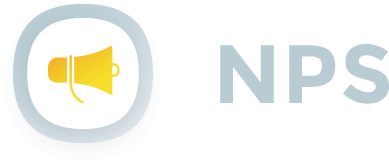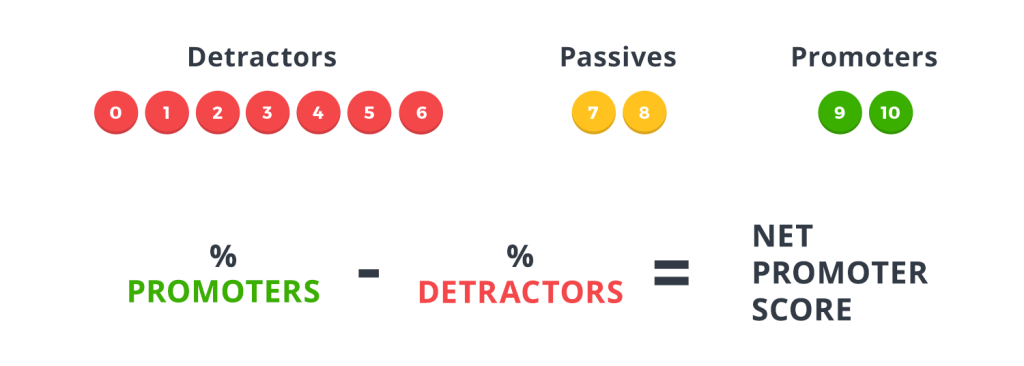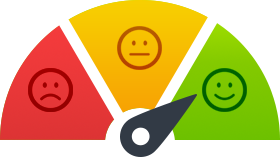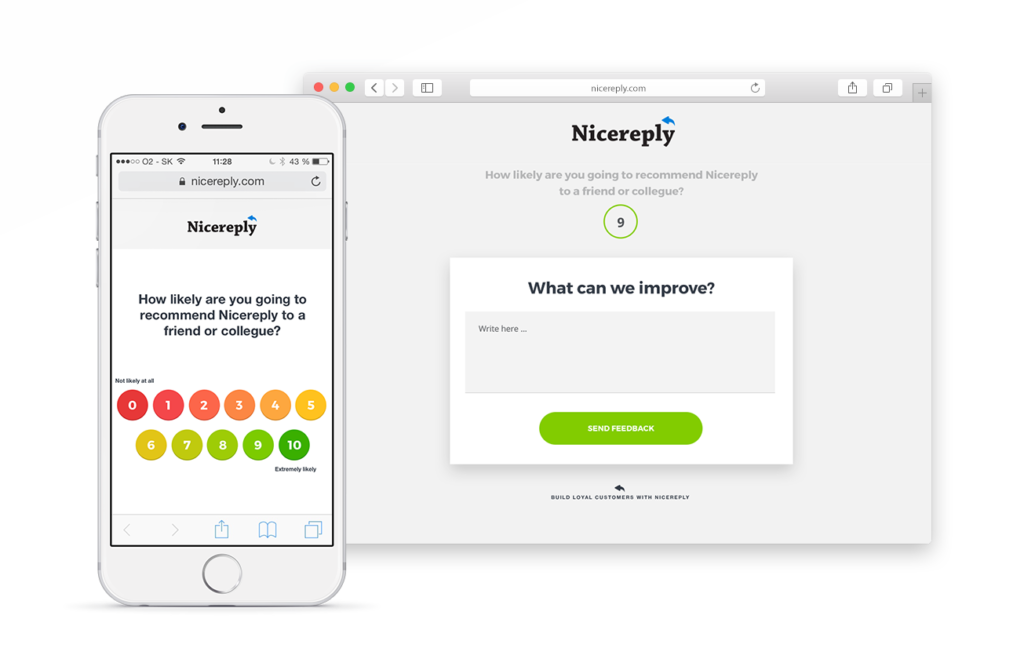High NPS score correlates strongly with repurchases, referrals, and other activities that drive companies towards growth.
Traditional customer feedback surveys fail at efficiency: They are lengthy. And instead of action, they inspire both endless and pointless analysis.
Using traditional surveys to get real feedback simply doesn’t work. Clients rarely want to go through the torture of answering 10+ annoying questions. No matter how loyal they feel towards your company.
Today, we’ll show you how to measure and boost the customer loyalty with Net Promoter Score for Salesforce.
NPS helps you identify loyal clients as well as unhappy customers who you can turn into satisfied promoters. That’s what the “P” in the NPS stands for: Promoter.
Fred Reichheld at the Bain & Company originally designed the system in 2003. Initially, they tested a bunch of questions to see the correlation between customers’ answers and their behaviour. The result was to use the following question:
“How likely are you to recommend Company X to a friend or colleague?”
No other question proved to be as efficient. Since high scores on it correlated strongly with repurchases, referrals, and other activities that drive companies towards growth.

Why use NPS score?
For starters, it’s simple: since NPS survey rarely asks more than one question. This leads to increased response rates, which means more feedback.
Next, asking about the “likelihood to recommend” is scored on a simple, intuitive zero-to-ten scale. The scoring is easy to track.
Third, NPS is a number that you can track daily, monthly, or whenever; just like net profit.
Finally, you can even break it down to business lines, stores, or by individual sales reps for better accountability.
How to calculate NPS?
We already know what to ask. Let’s take a look at the calculation behind the final Net Promoter Score.
Clients choose from a 0 – 10 scale, where 0 means poor likelihood and 10 its exact opposite.
Based on the NPS methodology, we group the customers into three distinct categories:
• 1-6 are Detractors
• 7-8 Passives
• 9-10 Promoters

The final NPS score is a number on a scale from -100 to +100. To calculate it, detract the percentage of detractors from promoters. If you achieve the score greater than 0, you are doing well. A score of +50 is something all businesses that want to achieve long-term growth should aim at.
Using NPS to boost customer loyalty
Unfortunately, there’s no “quick-fix” for that. The only thing you can do to ensure your NPS is growing towards positive numbers is value every feedback. But more importantly, follow-up with detractors, who may, as a result, become your promoters if you make them feel like you’re listening.

How often you collect and analyse NPS depends on your product’s planning cycle. But if you wish to have an instant idea of how well your customer service agents deal with clients’ responses, you can utilise the ratings weekly. Following your NPS reports at regular intervals is what also makes a true customer-focused executive.
Start Measuring NPS Score with Nicereply for Salesforce
You can start measuring NPS score today in a matter of minutes and see the data pushed directly into your Salesforce account.

All you need to do is create a free trial of Nicereply (if you don’t already have one) and follow the basic setup instructions.
You can see the instruction on how to measure NPS in every email you send out to customers here. Alternatively you can choose to send out a survey automatically after a conversation is closed, or at a specific time. You can read the instructions for that here.
In conclusion of our Salesforce Net Promoter Score Guide, NPS brings you an (almost) effortless way how to track the likelihood of your clients becoming returning customers as well advocates for your brand. The single question makes analysing responses easy. Subsequently it’s also immensely economical when converting Passives / Detractors to Promoters.







